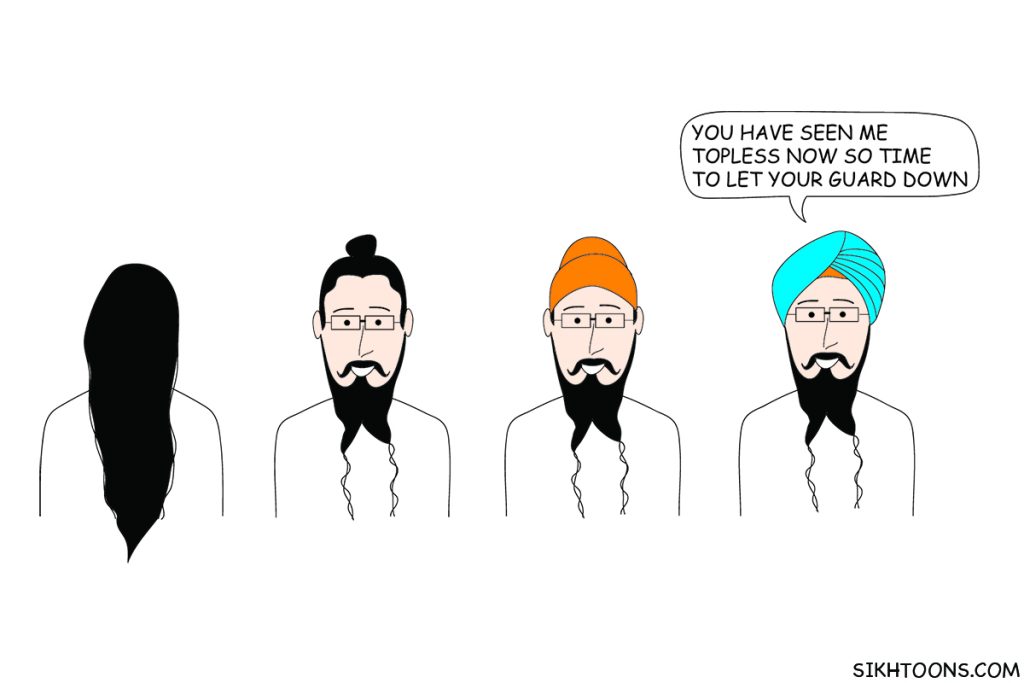Every day since early March, cartoonist Vishavjit Singh has slapped a stamp on a postcard and mailed it to Trump Tower in New York City.
Now that Trump’s competition has dropped out, Singh plans to keep mailing the postcards—which include an original message, drawing, or inspirational quote—every day until the November election. (He has yet to receive a response.)
And for Singh, the main rule he has set for himself, and the others who have joined his campaign, is compassion.
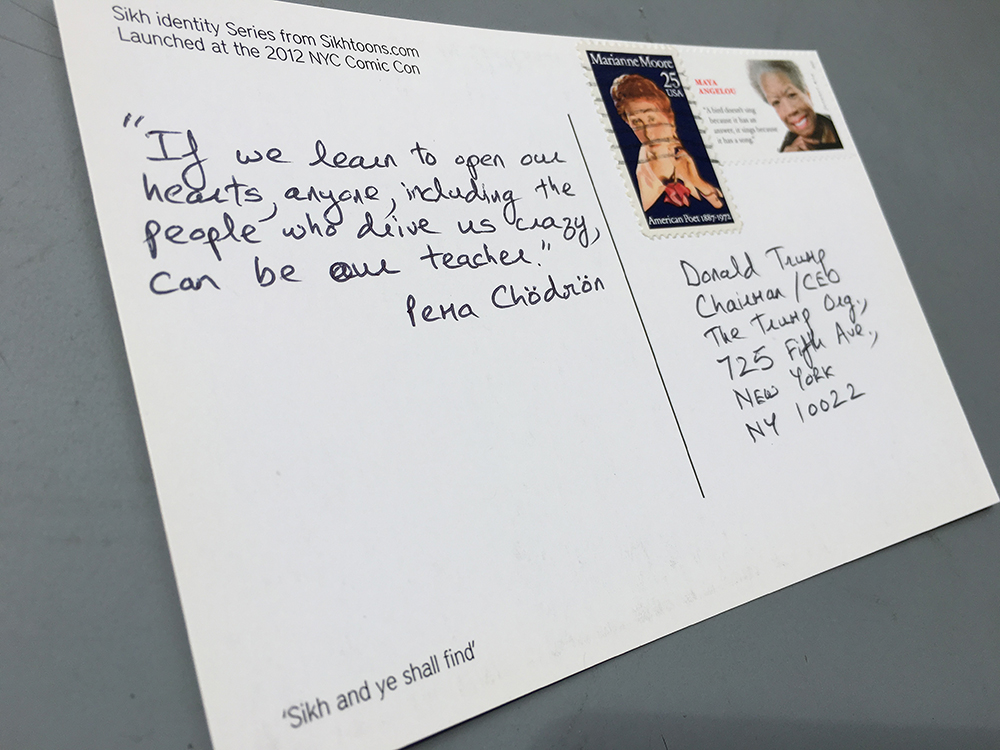
“You hear so much anger and vitriol from both sides. Trump is essentially meditating on anger and how to divide people,” said Singh, 45, a cartoonist and performance artist who lives in New York City. “People want to respond [with anger], call him names and his supporters names. I just feel that if you respond with anger, that’s an emotion you’re going to have to live with as well. So I thought it’d be interesting to drop some humor and compassion at times into this whole conversation.”
But Buddhism plays a larger role in Singh’s postcard campaign and personal faith than inspirational quotes. About 15 years ago, Singh’s exploration of Buddhism helped him reconnect with the religion of his birth.
Singh was born in Washington, D.C., to a Sikh family that he said culturally identified with their faith—with men wearing the traditional turban—but not practicing and rarely going to the gurdwara [temple].
Singh said he has lived through two major waves of discrimination in two different countries—first in 1984 when Indian Prime Minister Indira Gandhi was assassinated by her two Sikh bodyguards, and after 9/11. After moving back to the United States, Singh decided to take off his turban and blend in.
Identifying as an atheist, Singh said he fell in love with books in college, and began exploring philosophical writings of Plato, Nietzsche, and Alan Watts.
“At Berkeley I went to a beautiful book store and I discovered the Tibetan Book of Living and Dying by Sogyal Rinpoche, and that had a profound impact on me. It just opened me and my heart to things that are spiritual in nature,” Singh said.
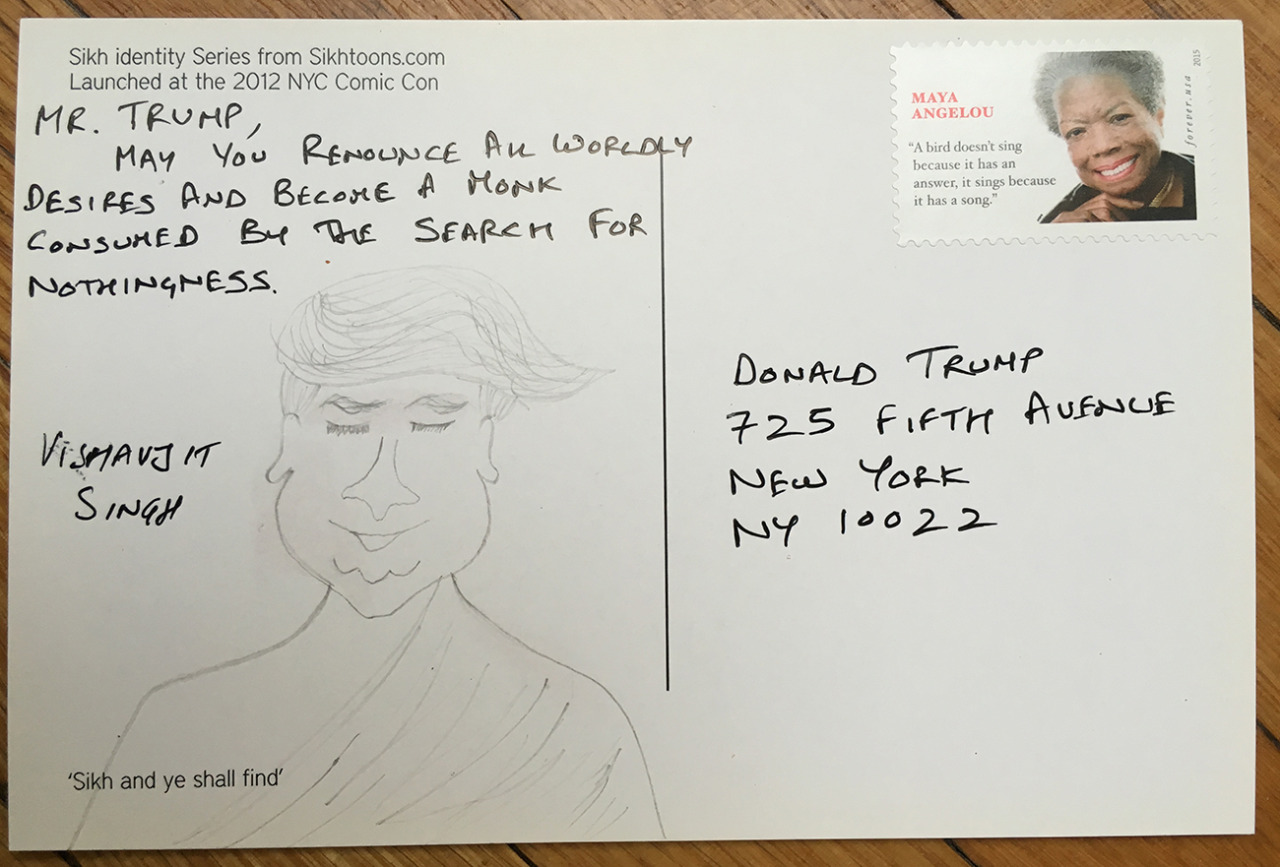
Singh kept exploring Buddhism, and credits that as the first step to reconnecting with Sikhism. About two years after reading Sogyal Rinpoche’s book, Singh donned his turban again in 2001.
“We might look different and practice different faiths but in our hearts it’s the same light, and the connection I’ve found between Sikhism and Buddhist philosophy is this whole focus that inside our hearts we’re pretty much the same. We’re connected to this presence that permeates everything,” Singh said.
Singh started his #SendSikhNotetoTrump in March. Some postcards include inspirational quotes and words of wisdom from Pema Chödrön and Harriet Tubman. Others are in the style of satire and political cartoons, and not all ooze equanimity.
The first postcard reads:
Dear Mr. Trump.
Your latest business venture is wicked.
Trump Meditation Inc.
Inhale deeply
Imagine all the problems
Visualize an external source
Exhale
Let out your fear and anger
Target President Obama, immigrants,
Muslims and whoever else
Repeat cycle until Election Day
Vote Donald Trump
Kind Regards,
Lucifer
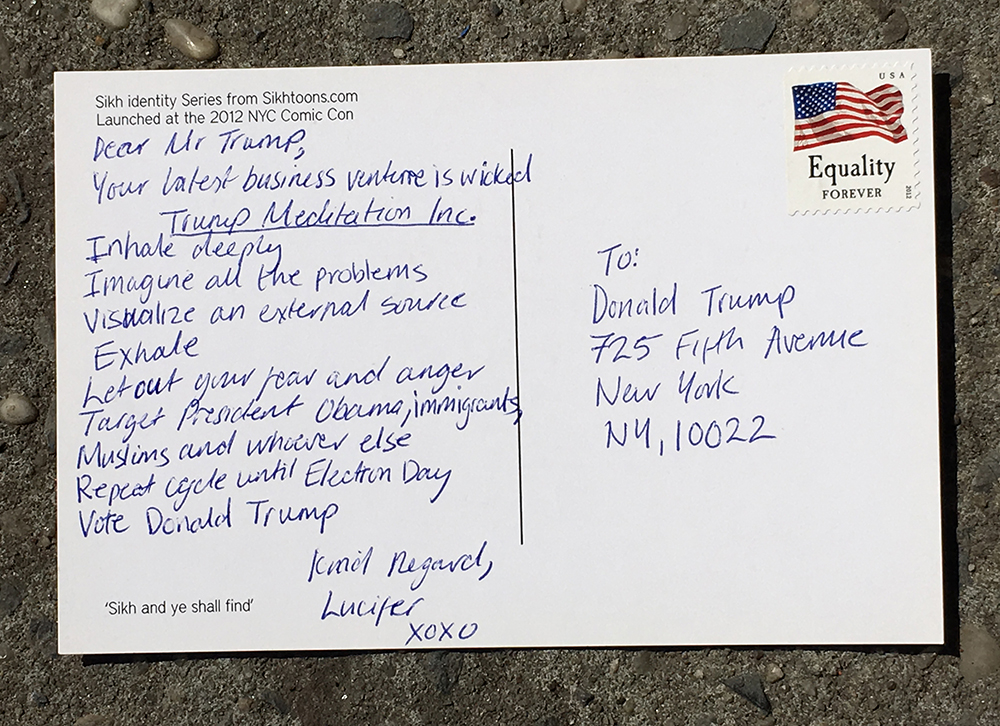
Others show book covers with Trump listed as authors of books such as Frankenstein, Lolita, Confederacy of Dunces, and the Holy Bible.
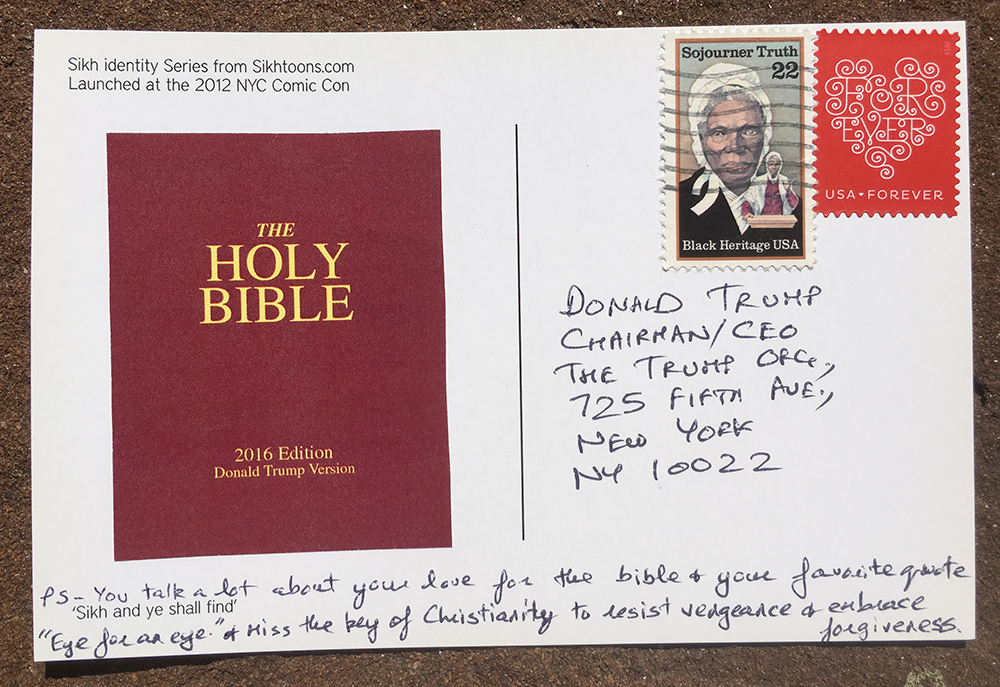
“There is a tongue and cheek humor in there at times that might be a little less compassionate,” Singh said. “But sometimes we have teachers who have different styles, some are pretty gentle and others are very harsh or stern. So there might be some messages where people say this is not compassion. I’m poking fun at him. I also find the humor does work, rather than calling someone a horrible name.”
If you have a note to send to Trump via Singh, you can do so on his submission page. (And you can tell us what you would write to Trump in the comments below.)
Ultimately Singh says the only way to stop Trump is for Americans to get out and vote. But he hasn’t given up on the power of persuasion.
“Words have an impact. I know my life has changed because of certain words or books. He might seem like someone who is full of himself and his ego, but perhaps he is someone who can be impacted by words, you never know,” Singh said.
Thank you for subscribing to Tricycle! As a nonprofit, we depend on readers like you to keep Buddhist teachings and practices widely available.
